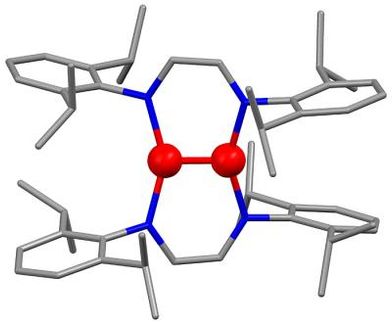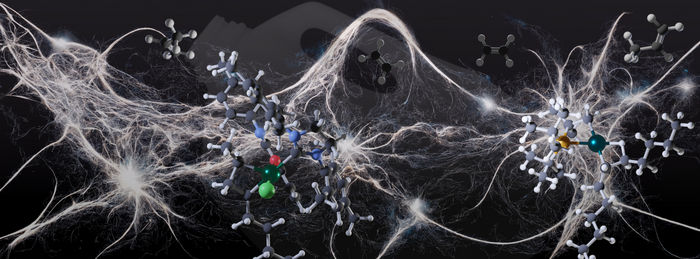Bare bones of crystal growth: Biomolecules enhance metal contents in calcite
Advertisement
From shells to bones, the skeletons of organisms contain small amounts of impurity elements such as magnesium. Because the levels of these elements provide important clues to past environments, a considerable effort has focused on understanding how to relate impurity contents to the ancient environments in which an organism lived.
In Science magazine, Allison Stephenson, a Ph.D. candidate in geoscience, and Patricia Dove, professor of geoscience in the College of Science at Virginia Tech, and colleagues report that a hydrophilic peptide, similar in character to those found in calcifying organisms, significantly enhances the magnesium (Mg)-content of calcite.
"We knew from another study in our group (Elhadj et al., 2006, PNAS) that the chemistry of simple peptides as well as proteins could be tuned to control crystal growth rate and change crystal morphology," said Dove. "From that understanding, we realized that the water-structuring abilities of certain biomolecules could also influence the amount of impurities that can go into minerals."
"All organisms use proteins to grow minerals into complex shapes with remarkable functions," said lead author Stephenson. "But this finding is especially meaningful for geologists because Mg-content in carbonates is used as a 'paleo thermometer'. That is, we know that Mg content increases with temperature, but now we see that certain biomolecules could also affect those 'signatures'. The findings raise questions about the interplay of different factors on metal-contents in biominerals."
The findings also offer new insights for materials synthesis because a high degree of control on impurities is often necessary to give specific properties such as strength or electrical conductivity. By using biomolecules, it may be possible to tune impurities to desired levels, Dove said.
"Also, this basic research suggests new ways of looking at biochemical origins of pathological skeletal mineralization, and whether local biochemistry could influence the uptake of toxic metals into human skeletons," Stephenson said.
Original publication: "Peptides enhance magnesium signature in calcite: Insights into origins of vital effects"; Science 2008.
Other news from the department science
These products might interest you
Most read news
More news from our other portals
See the theme worlds for related content
Topic world Synthesis
Chemical synthesis is at the heart of modern chemistry and enables the targeted production of molecules with specific properties. By combining starting materials in defined reaction conditions, chemists can create a wide range of compounds, from simple molecules to complex active ingredients.

Topic world Synthesis
Chemical synthesis is at the heart of modern chemistry and enables the targeted production of molecules with specific properties. By combining starting materials in defined reaction conditions, chemists can create a wide range of compounds, from simple molecules to complex active ingredients.






























































